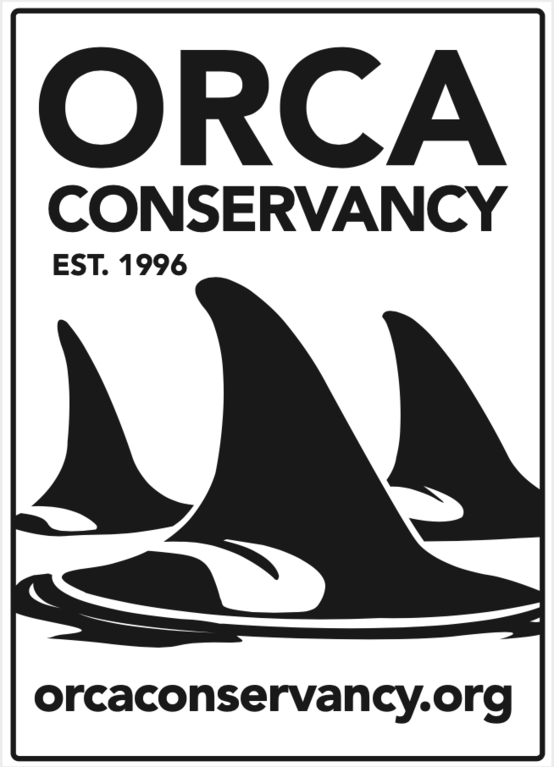ACTION ALERT: Oppose NOAA's Plan to Strip Habitat from ESA Safeguards
Submit a public comment opposing the proposed rule by the US Fish and Wildlife Service (FWS) and the National Oceanic and Atmospheric Administration (NOAA) to rescind the definition of “harm” in the Endangered Species Act (ESA) to weaken environmental protections.
Public comments are due 5/19/25.
Members of the J16s surfacing in front of the Olympic Mountains. Taken by Kendra Nelson
What is happening and why it matters?
The US Fish and Wildlife Service (FWS) and National Oceanic and Atmospheric Administration (NOAA) have proposed a modification to the Endangered Species Act (ESA) to rescind the regulatory definition of “harm”. Currently, “harm” is defined by regulation (50 CFR § 17.3) to include significant habitat modification or degradation that kills or injures wildlife by significantly impairing essential behavioral patterns, such as breeding, feeding, or sheltering.
The term “take” under the ESA means “to harass, harm, pursue, hunt, shoot, wound, kill, trap, capture, or collect a listed species, or to attempt to engage in any such conduct.”. Under the proposed changes, the regulatory definition of “harm” would be removed, along with the narrowing of the term “take” to only include direct actions of harassment, such as hunting or killing. In doing so, the proposed changes would no longer consider habitat degradation as a form of prohibited harm, unless it causes immediate or direct injury to wildlife.
How will this impact orcas and salmon?
If passed, this change will have serious negative implications for the recovery efforts of the critically endangered Southern Resident killer whales (SRKWs), which, as of this writing, only have 74 remaining individuals.
The Southern Residents are a genetically distinct population of orcas that prey exclusively on fish, with the majority of their diet consisting of Chinook salmon, also called King salmon. The three major threats impacting the SRKWs’ recovery have been identified as a lack of food, pollution, and vessel noise.
Chinook Salmon - Photo by Kendra Nelson
The proposed changes seek to weaken the environmental protections, which are vital to the recovery efforts of the Southern Residents and salmon on which they depend. The SRKWs need a quiet and clean habitat for foraging and raising calves. By omitting environmental protections under the terms “take” and “harm”, agencies and developers will not be held liable for activities that degrade habitat, such as underwater construction, increased shipping, and pollution.
Chinook salmon are the primary prey of SRKWs and are essential to their survival. Under the current ESA framework, protecting and restoring salmon habitat has been a core component of orca recovery efforts. However, the proposed rule could undermine this connection by narrowing the definition of “harm.” If habitat degradation that results in fewer salmon is no longer recognized as harm, agencies and industries responsible for diminishing salmon availability may escape liability, even when SRKWs suffer starvation as a result.
Section 7 of the ESA requires federal agencies to consult with NOAA Fisheries whenever their actions may affect endangered species, including through habitat impacts. This process is a key safeguard to prevent unintentional harm. If “harm” no longer includes habitat degradation, many activities that indirectly threaten SRKWs, such as shoreline development or altered river flows, may fall outside the scope of required consultation. This weakens federal oversight and could allow damaging projects to move forward without mitigation or evaluation.
Vessel traffic and underwater noise significantly impair SRKWs’ ability to forage and communicate, yet these disturbances often do not result in direct physical injury. The current broader definition of “harm” allows regulatory agencies to consider these cumulative effects in enforcement decisions. Under the proposed rule, these chronic and well-documented threats might no longer qualify as prohibited harm under the ESA unless there is evidence of immediate injury, creating a dangerous loophole that fails to reflect the realities of SRKW decline.
How to submit a public comment:
You can submit a comment directly on the Federal Register website:
https://www.federalregister.gov/documents/2025/04/17/2025-06746/rescinding-the-definition-of-harm-under-the-endangered-species-act
Tips for public comment:
Be respectful and polite in your comments, emails, or phone calls.
Get personal, share your experiences, and explain why you care. Personal messages carry more sentiment and weight, which are more meaningful and can have a bigger impact on policymakers.
Avoid pre-written copy-and-paste templates. New practices make it so that pre-written templates only get counted once. Meaning if multiple people submit the same comment, letter, or email, it will only be recorded once. Make it personal and unique to make sure it is counted.
Cite relevant data that supports your comment.
Suggested talking points:
“Harm” must include habitat degradation. For species like Southern Resident killer whales, habitat and prey availability are as critical as physical safety.
This rule would remove one of the few tools we have to hold industries accountable for harming whales indirectly through pollution, noise, vessel traffic, or salmon depletion.
The current regulatory definition reflects decades of science and conservation experience. Removing it would prioritize legal formalism over biological reality.
The decision to rescind the regulatory definition of “harm” would not only affect SRKWs but also endanger countless other species whose survival depends on habitat quality and ecosystem function. From salmon and sea turtles to birds and pollinators, many ESA-listed species face threats that are indirect, cumulative, or habitat-based. If successful, this rollback could serve as a precedent for further weakening the Endangered Species Act, undermining decades of conservation progress at a time when stronger protections are desperately needed.
These proposed changes would be catastrophic. Habitat-based protections, for most endangered species, are the only effective measures of recovery. We cannot risk weakening these protections as it will put endangered species like the Southern Residents at greater risk.
Removing habitat degradation as a form of harm is a direct attack on so many conservation efforts. We can’t do work in a vacuum & it’s all interconnected
Donate


